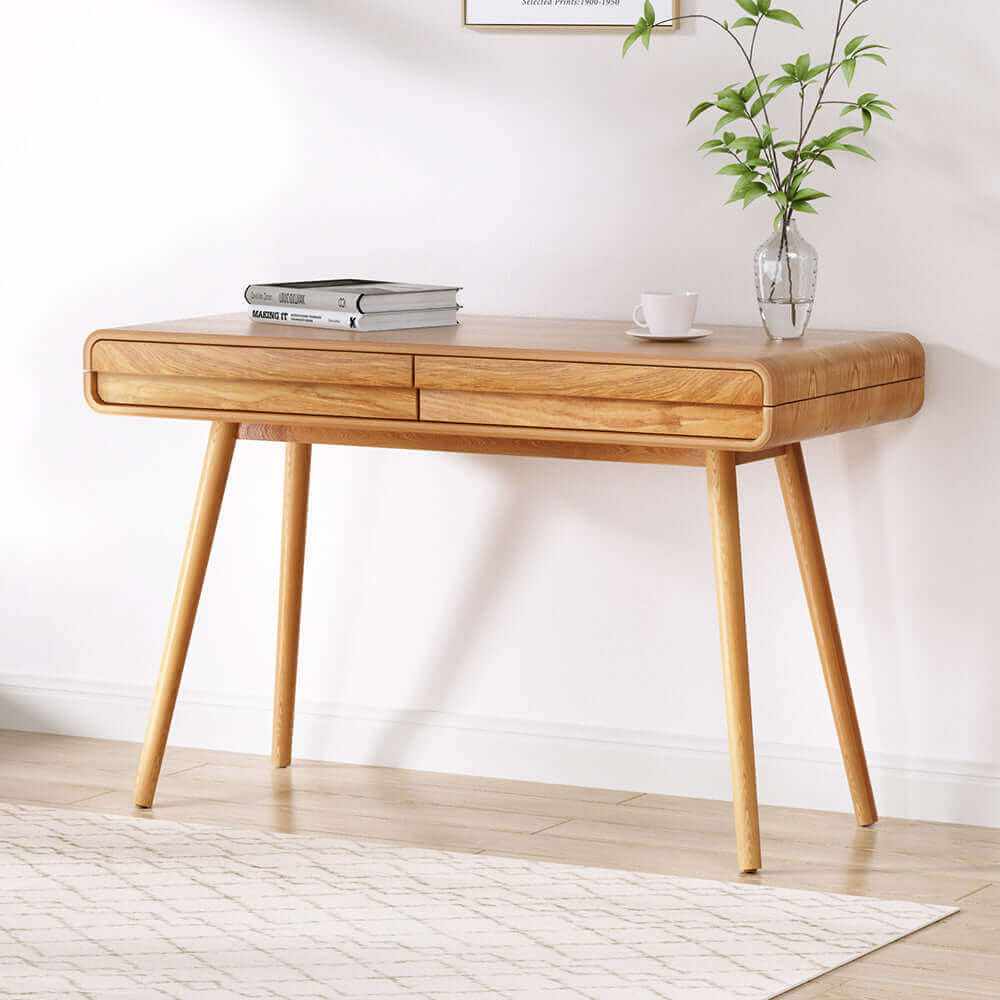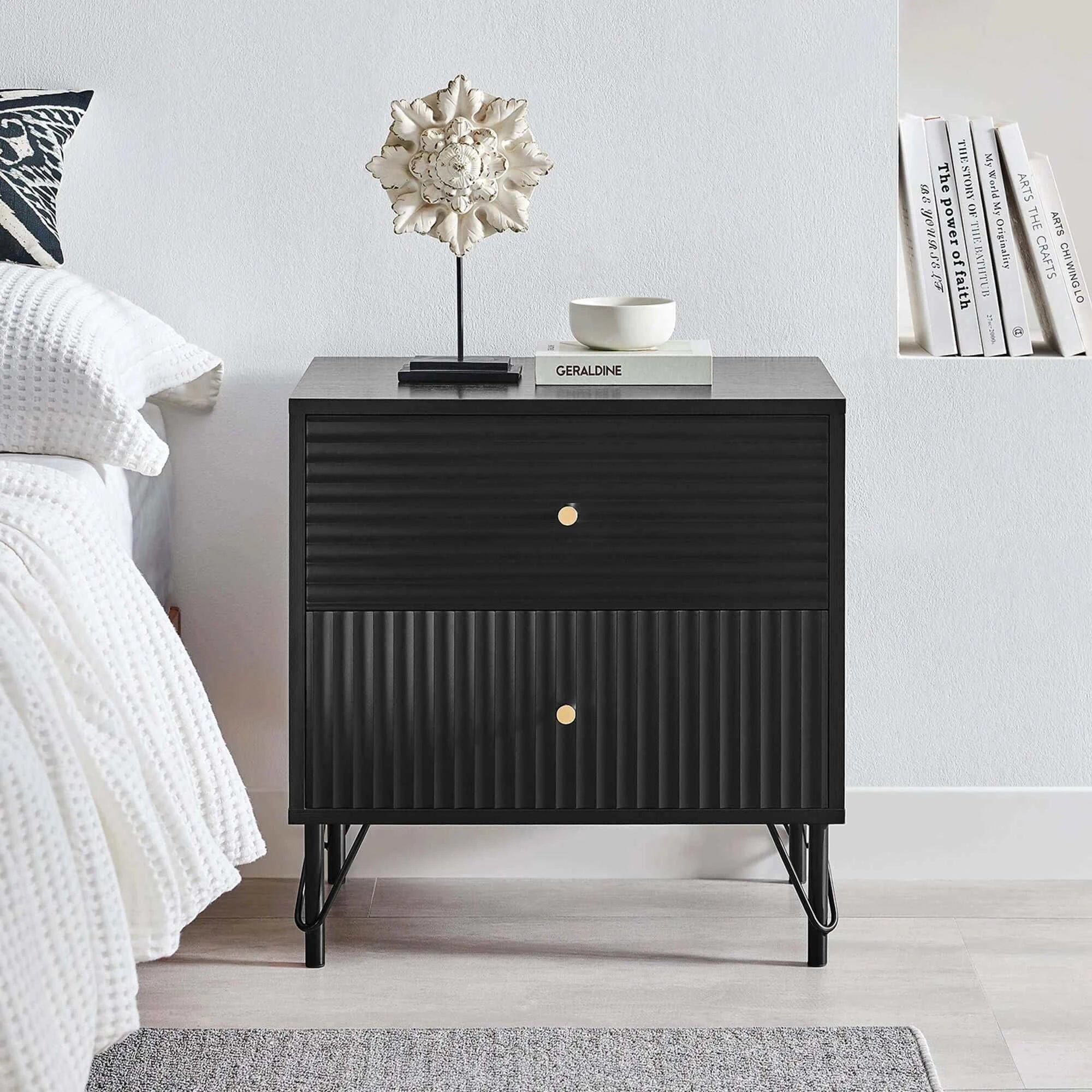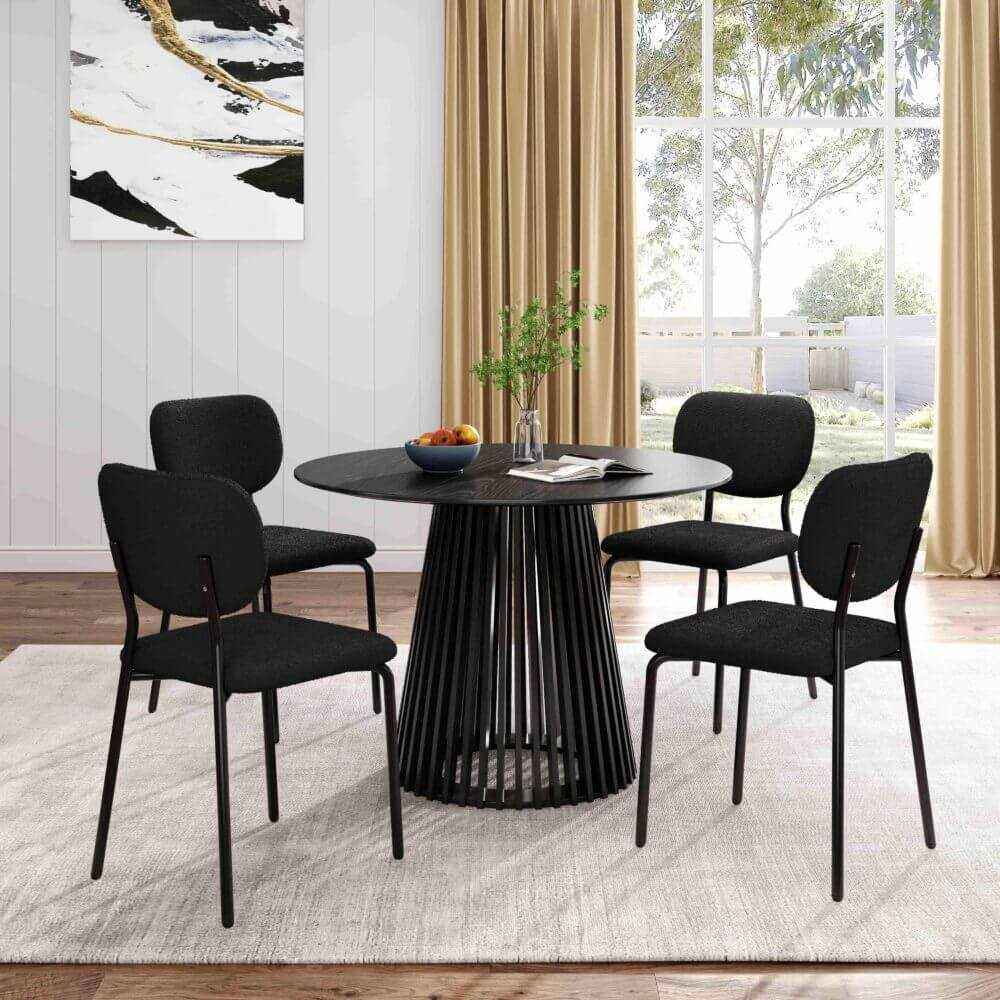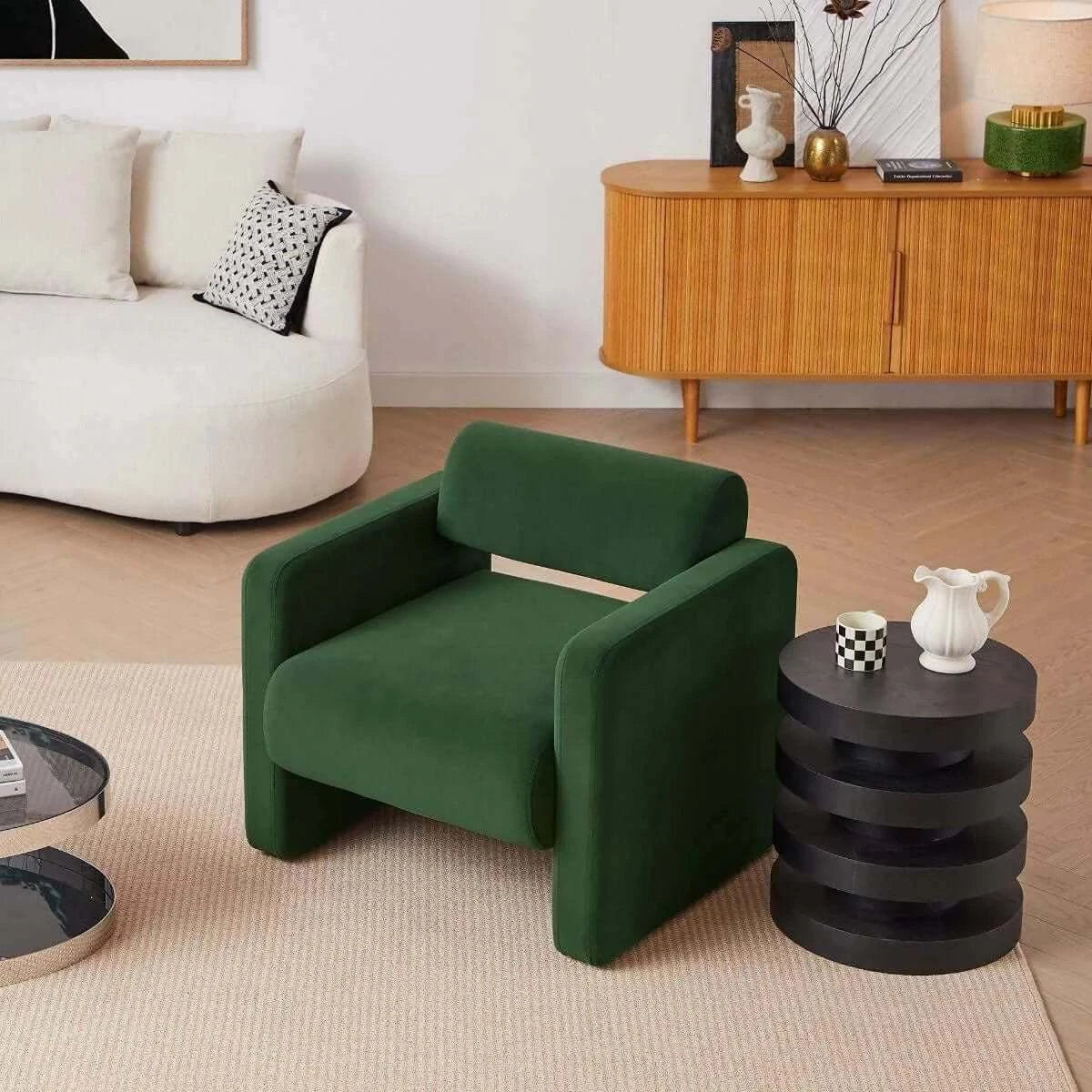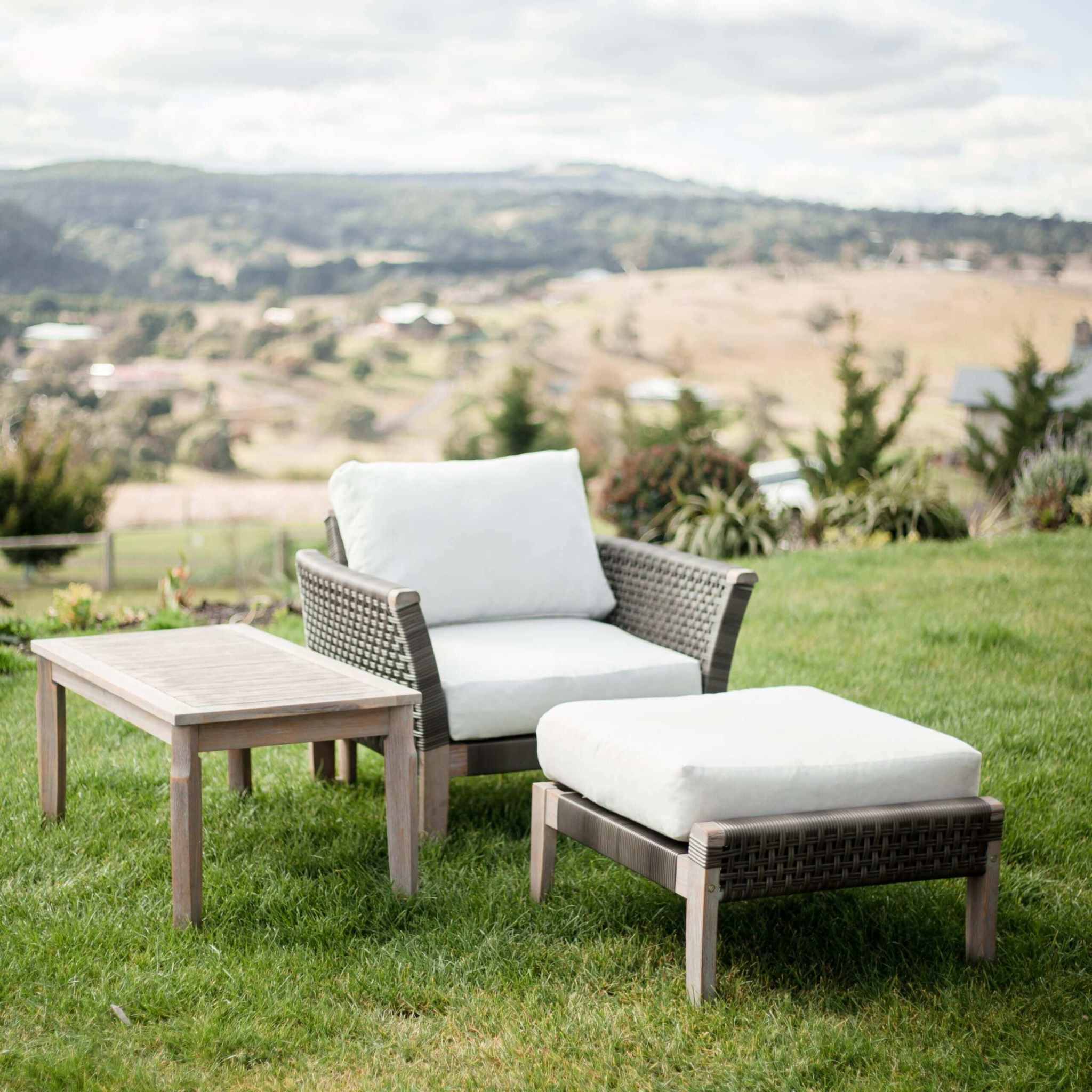Are you looking for the perfect study desk for your home office? A suitable study desk can boost your productivity and keep your workspace tidy. In this article, we’ll cover different types of study desks, their features and tips to find the best one for you. Plus, study desks in Australia have modern and contemporary designs for home offices.
Quick Facts
- A dedicated study desk increases productivity and mental well-being by providing a structured space tailored to one's needs to perform daily tasks.
- Study desks come in different types: compact study desks, standing desks, and executive desks, each with unique features to fit different spaces and usages.
- The key features to look for in a study desk are storage options, ergonomic design, and durable materials, which are essential for functionality and longevity.
Why Study Desk?
A study desk is not just a piece of furniture but a productivity tool. A dedicated space creates a routine essential for a productive work environment. Sitting at your study desk, your mind goes into work mode, reducing distractions and improving focus. This structured approach not only increases your work output but also your mental well-being.
Choosing a study desk that fits your needs can make a big difference in your daily performance. Whether it’s a computer desk, an office desk or a smaller desk for a compact space, the right setup can make all the difference. With a suitable desk, you can create a study nook that supports your productivity and helps you stay organised, making your work or study sessions more enjoyable and effective.
Study Desks
Study desks come in different shapes, sizes, and designs to suit individual needs and preferences. There's something for everyone, from minimalist writing desks to multifunctional computer desks. Writing desks, for example, offer a clean and simple space, perfect for those who need a clutter-free environment to focus. Computer desks have compartments for PCs and accessories, ideal for those who rely heavily on technology.
For those who want to save space, floating desks mounted on the wall offer a modern look and free up floor space. L-shaped and corner desks are great for maximizing room space, especially in small offices or weirdly shaped rooms. Each type of desk has its features and benefits, so there’s one to fit every home office setup. Let’s take a look at some of these desk types.
Compact Study Desks
Compact study desks are designed to fit into smaller spaces while providing workspace. Perfect for those who have limited space but still need a functional and organised study area. Some features of compact study desks:
- Foldable, can be stored away when not in use
- Built-in storage and shelves for books and supplies
- Adjustable height for ergonomic comfort
- Modern design to match any decor
- Durable
These features make smaller, compact study desks perfect for multi-purpose rooms or small apartments where space is limited.
In addition to their space-saving design, compact desks often have built-in shelves that use vertical space. This is great for keeping books, stationery, and other study materials within arm’s reach, allowing you to create a study nook in the smallest spaces.
Whether you need a slimline desk for a hallway or a foldable desk for a guest room, compact study desks are perfect for any home office setup.
Standing Desks
The popularity of standing desks is growing due to their many health benefits and increased productivity. By allowing you to switch between sitting and standing, these desks reduce sedentary behaviour, which is linked to back pain and high blood sugar levels.
The Stand Steady Joy Desk and the Atlantic Height-Adjustable Desk with Casters offer flexibility and extra storage for a compact and space-saving solution. Adding a standing desk to your home office will improve your work experience by promoting better posture and reducing physical strain. Whether you choose a fully adjustable desk or a simple riser, standing desks are a modern and functional way to create a healthier workspace.
Executive Desks
Executive desks are for those who need lots of space and storage for big work setups. They have a larger surface area to accommodate multiple monitors, paperwork, and other work materials, perfect for professionals who need an entire workspace.
In addition to their spacious design, executive desks often have built-in storage solutions like drawers and cabinets, so you have plenty of room to keep your big office or home workspace organized and clutter-free. Whether you have a big or home office, an executive desk can give you the functionality and style to create a productive space.
What to Look for in a Study Desk
When choosing a study desk, key features that guarantee functionality and durability are essential. Storage options, ergonomic design, and material durability are the top considerations. Storage desks with drawers and shelves keep your study materials organized and within arm’s reach, reducing clutter and increasing productivity.
An ergonomically designed study desk can improve posture and reduce strain during long study sessions. The material and durability of the desk are crucial to its longevity and style. Whether you prefer a modern metal and glass desk or a traditional wooden desk, choosing the right material will ensure that your desk withstands daily use and is a stylish addition to your home office.
Storage
A practical study desk should have the following:
- Storage spaces like drawers or compartments to keep work tools organized
- Desks with shelves to increase organisation by providing extra space to categorize and store work essentials
- Custom joinery and floating shelves to make use of space and go up vertically for storage, minimizing the footprint in the home
Desk organisers have designated compartments for pens, pencils and markers. Options like the Marbrasse Multi-Functional Desk Organizer and clear acrylic organisers can store essentials in a compact design, keeping your workspace tidy,
Ergonomic Design
The height of a study desk should be around 66-75cm to allow a comfortable seating position. Along with a matching chair, the desk height allows for a natural arm position and leg space. Measure your ergonomic needs by measuring the distance from your chair armrest to the floor to ensure the desk height is comfortable.
Adjustable-height desks are becoming popular because they allow users to switch between sitting and standing, promoting better posture and reducing strain. Ergonomic desks should have surfaces that are comfortable to touch to avoid discomfort during long hours of use.
Material and Durability
Study desks are made from various materials, including durable woods like oak, cherry, or mahogany, and modern materials like metal, glass, and engineered wood. Traditional wooden desks are known for longevity because of the durability of woods like oak, cherry or mahogany.
The material also affects the desk's style. Natural wood gives a rustic and earthy feel, while modern materials like metal and glass give a sleek and functional design. When choosing a desk, consider the material that fits your style and durability needs.
How to Organize Your Study Desk
A desk organised reduces clutter and increases time management and productivity. A clean and clutter-free study space is essential to maintaining focus and productivity. Start by removing everything from your study table to assess and organize better.
Organize items by how often you use them to reduce visual clutter. Use drawers, shelves, or containers to store items not needed on the desk surface but within reach. Organising your workspace will make you more efficient.
Desk Accessories
Get desks with built-in cable management to keep your workspace tidy and safe. A cable manager box organizes charging cables and USB cords and reduces clutter. Monitor stands to raise your screen to eye level, increasing ergonomics and adding more desk space.
Small accessories like magazine holders and pen stands can keep the study area organised and clutter-free. Wall file organizers can also keep your work surface tidy by storing files off the desk.
Shelves and Drawers
Ensure shelves are within arm’s reach to maintain a comfortable working posture and reduce straining or moving too much. Consider installing shelves above the study table to keep books and materials within reach. Using wall space for built-in shelves or wall-mounted cabinets can add more storage in a small study area.
To maximize storage and style, you can:
- Asymmetrical shelving
- Storage drawers with dividers or small baskets to separate different categories of items keep textbooks, notebooks, and reference materials organized and the desk surface clear.
- Drawer organisers like Marie Kondo's Hikidashi Bamboo Set or Smartake 13-Piece Drawer Organizers can be used to turn chaotic drawers into organised spaces.
How to Choose the Right Size for Small Spaces
Choosing the right size for your space requires precise measurements and consideration of the floor area. Here are the steps:
- Measure your space and leave about 33-36 inches behind the desk for your chair and 48 inches in front for other furniture.
- How much space do you need for your work materials and equipment to fit your needs?
- Ensure the desk fits the available floor space and has the necessary dimensions and storage to work comfortably.
The dimensions should be:
- Width: at least 20 inches for a computer monitor
- Lengths: 48, 60, and 72 inches are standard
- Depth: 24-36 inches, depending on the equipment space needed
- Height: 30 inches for knee clearance and chair arms
Follow these steps, and you’ll have a desk that fits and is comfortable in your space.
Study Nook
To create a study nook, choose the right furniture, textures, and lighting to create a work-friendly environment. Go for lightweight and manageable furniture to keep the nook compact. This will make the space feel open and less cluttered, helping you focus and be more productive.
Use wallpaper or textured finishes to make a small study nook visually attractive. Natural light is essential for a productive workspace, so make sure your study nook has plenty of natural light or add lighting fixtures if needed. By choosing these elements wisely, you can create a study nook that’s functional and inspiring.
Budget Study Desks
Services like Afterpay and Klarna make it easier to find budget study desks by offering interest-free payment plans. These plans allow you to buy quality desks without the financial burden of paying the total amount upfront. Retailers like Freedom have a range of study desks at affordable prices, so you can find a desk that fits your budget and needs.
Whether you need a compact desk for a small space or a bigger desk for a larger office, there are options at reasonable prices. Using these payment plans and choosing a desk that fits your space and style, you can have an efficient and productive home office without breaking the bank.
Decorate Your Study
Decorating your study space can turn your workspace into a more cozy and personal space. Here are some ideas:
- Use bright colours to energise the area and create a stimulating environment.
- Use light neutrals to create a calm atmosphere.
- Add plants to reduce stress, improve concentration, and bring a bit of nature to your workspace.
Personal touches like photos and artwork will make the study room more inviting and personal. Rugs and lamps in different corners will create zones in the study area and make it feel more organized. By choosing the correct decor elements, you can create a study space that’s functional and beautiful.
Conclusion
In short, choosing a suitable study desk is critical to an efficient and productive home office. From compact study desks to standing desks to executive desks, options suit every need and space. Storage options, ergonomic design, and material durability are key to the functionality and longevity of your desk.
You can keep your workspace clutter-free and focused by accessorising your study desk with the right accessories and using your shelves and drawers wisely. Budget desks and thoughtful decor will make your study space more personal and inviting. You’re ready to create a study nook that meets your work and study needs.
FAQ's
What are the benefits of a study desk?
A dedicated study desk will improve productivity, focus and mental well-being by providing a structured space and reducing distractions.
What types of study desks are there?
You can choose from writing desks, computer desks, floating desks, L-shaped desks, and corner desks, depending on your needs and preferences. What will work for your study space?
What to look for?
When choosing a study desk, look for storage options, ergonomic design and material durability for functionality, comfort and longevity.
How do I accessorise my study desk?
You can accessorize your study desk with accessories like cable managers and monitor stands and use shelves and drawers to keep your workspace tidy and organized.
Are budget study desks available?
Budget study desks have interest-free instalment payment plans through services like Afterpay and Klarna. Retailers like Upinteriors have a range of study desks at reasonable prices.


